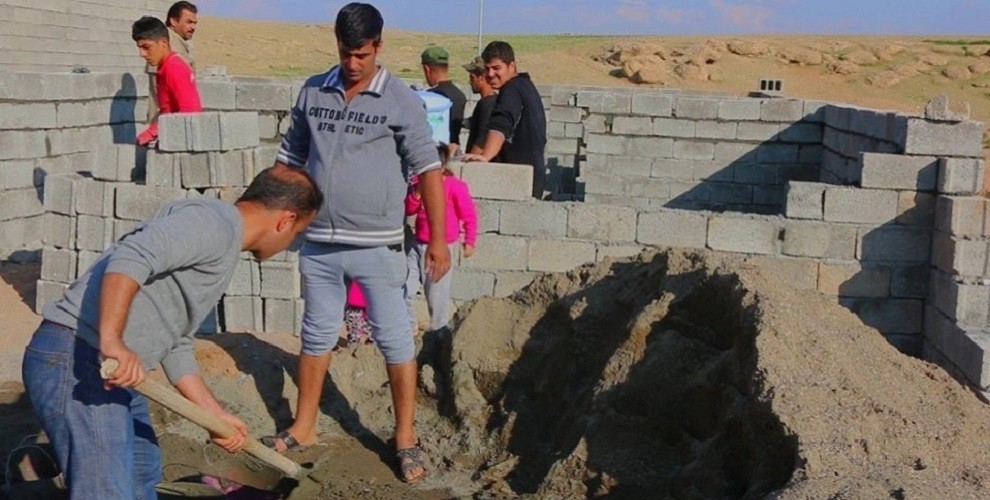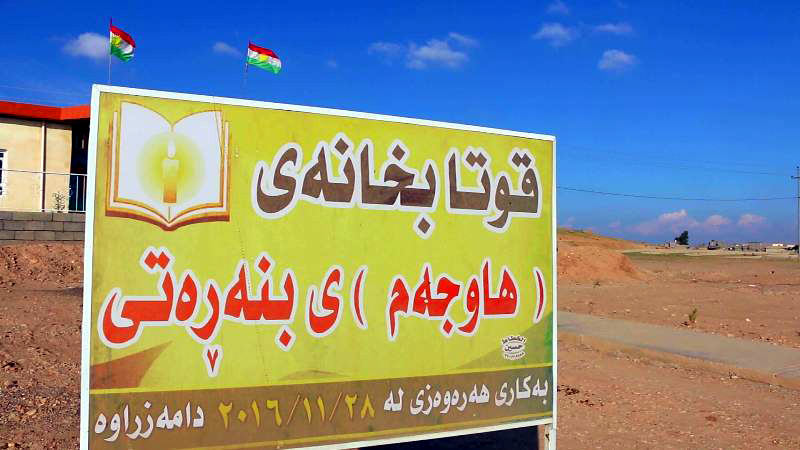Communal life in Khanaqin
Three years ago, a group of people from different ethnic groups in Khanaqin, southern Kurdistan, laid the foundation for a communal life. Since then a lot has happened.
Three years ago, a group of people from different ethnic groups in Khanaqin, southern Kurdistan, laid the foundation for a communal life. Since then a lot has happened.

About three years ago, people from different ethnic groups came together in Khanaqin town in the Diyala region of southern Kurdistan, laying the foundations for a communal life. In 2016, the project was named "Commune for Solidarity and Co-existence". Among its members are Kurds, Arabs, Christians, Sunnis, Shiites and Kakai Kurds.
While the commune finds broad popular support through its work, many volunteers are also involved in community projects. Thus, the group creates alternatives for the solution of problems such as the dilapidated roads, limited educational opportunities and vital needs in the village.
So far, the commune has, for example, built the Hawcem School and a cultural center in the district of Imam Abbas, where in addition to cultural events, memorial services and funeral ceremonies are held. In addition, a house was built for a needy family. At the moment the commune is working on another house.

Abas Rahman, a member of the commune, stated that they receive the necessary funds for their projects from benefactors in the form of donations. He said people are also supporting them and their projects.
Salam Abdullah, also in the Khanaqin Commune, states that communal life in the Middle East is not new.
"The communal lifestyle existed thousands of years ago in the matriarchal society. In the villages of Kurdistan, too, everything was once approached collectively. Today we are doing the same thing here and working together in solidarity. As long as we organize ourselves in a commune, neither poverty, unemployment nor repression can hit us".